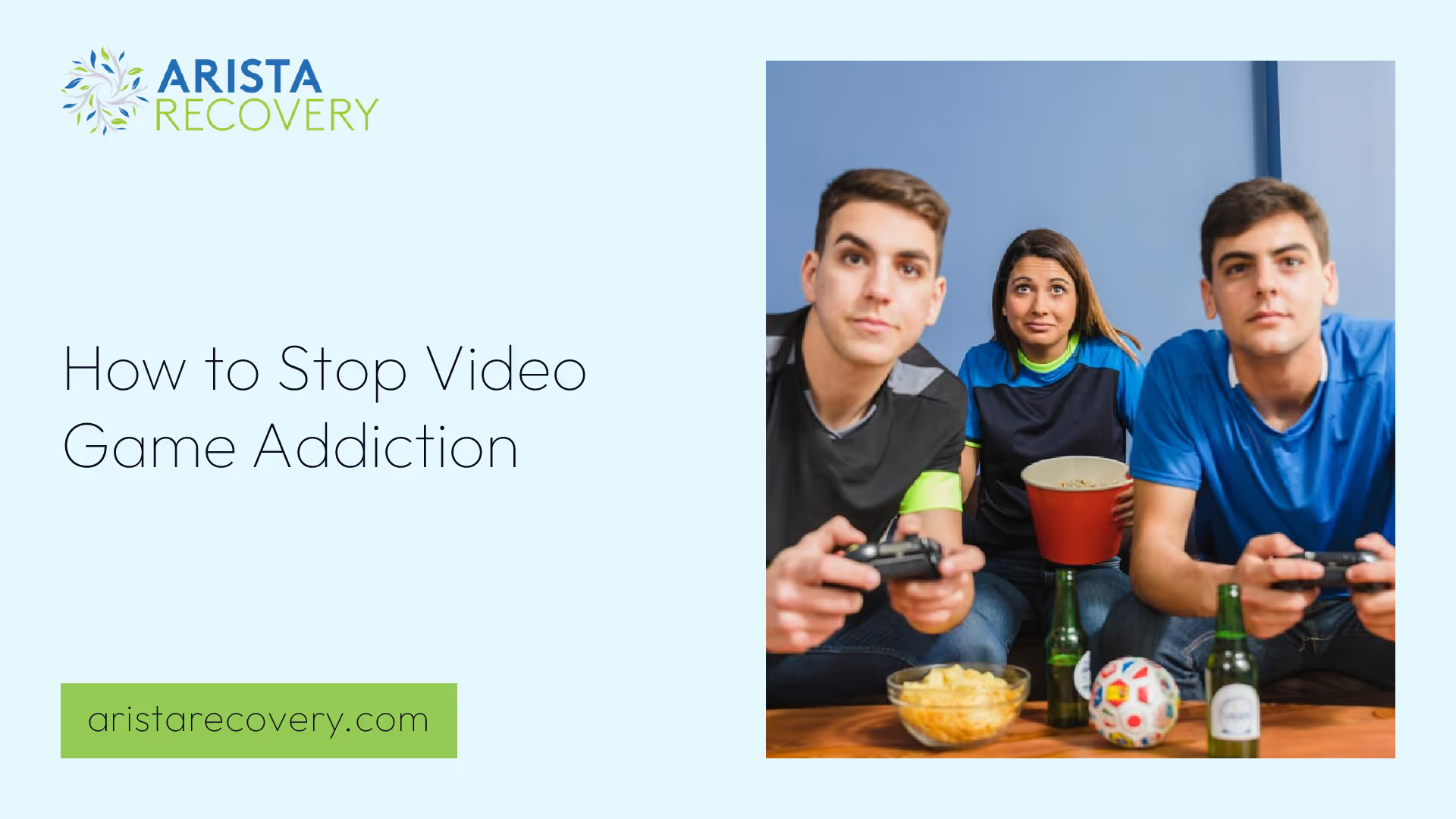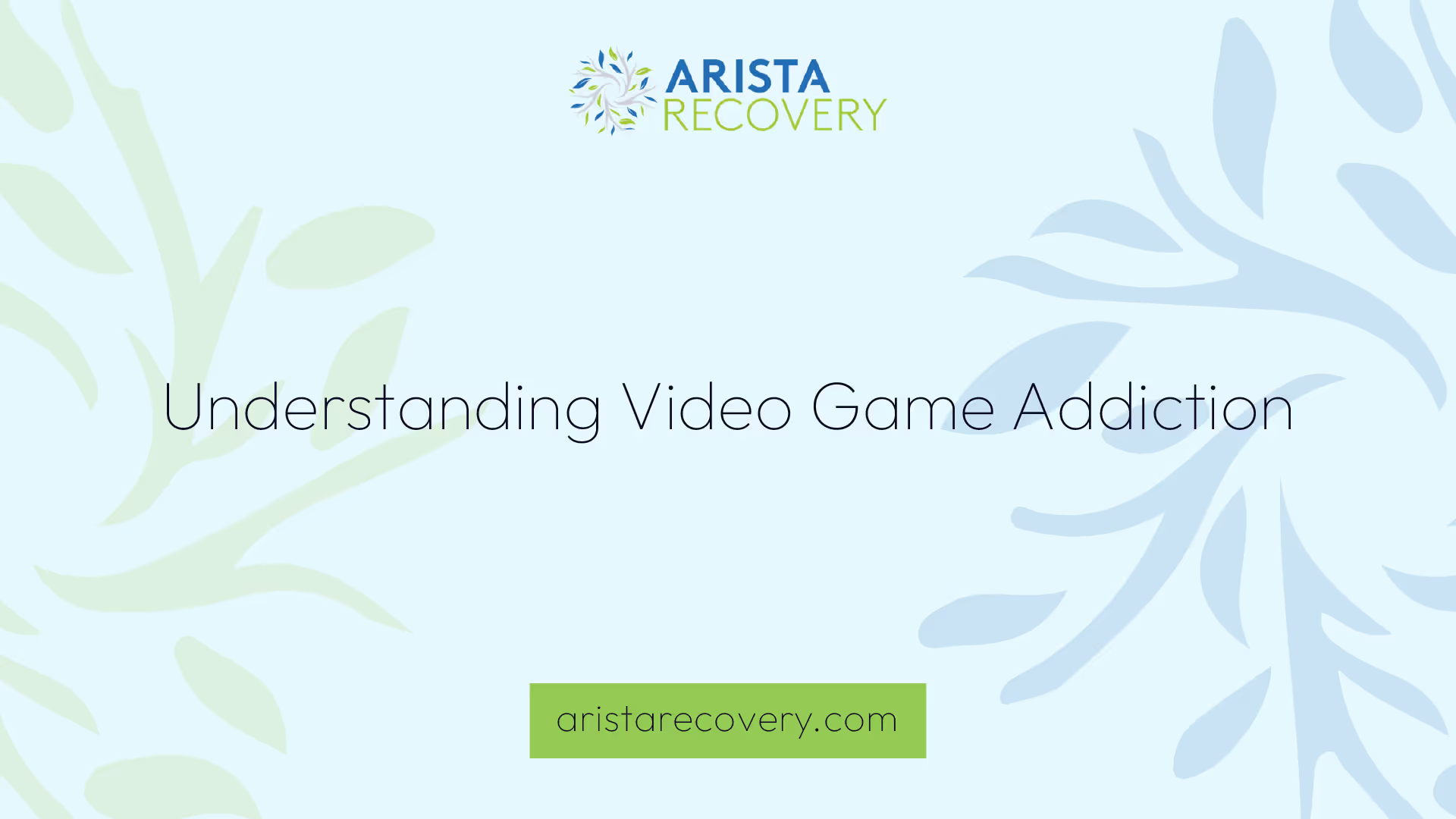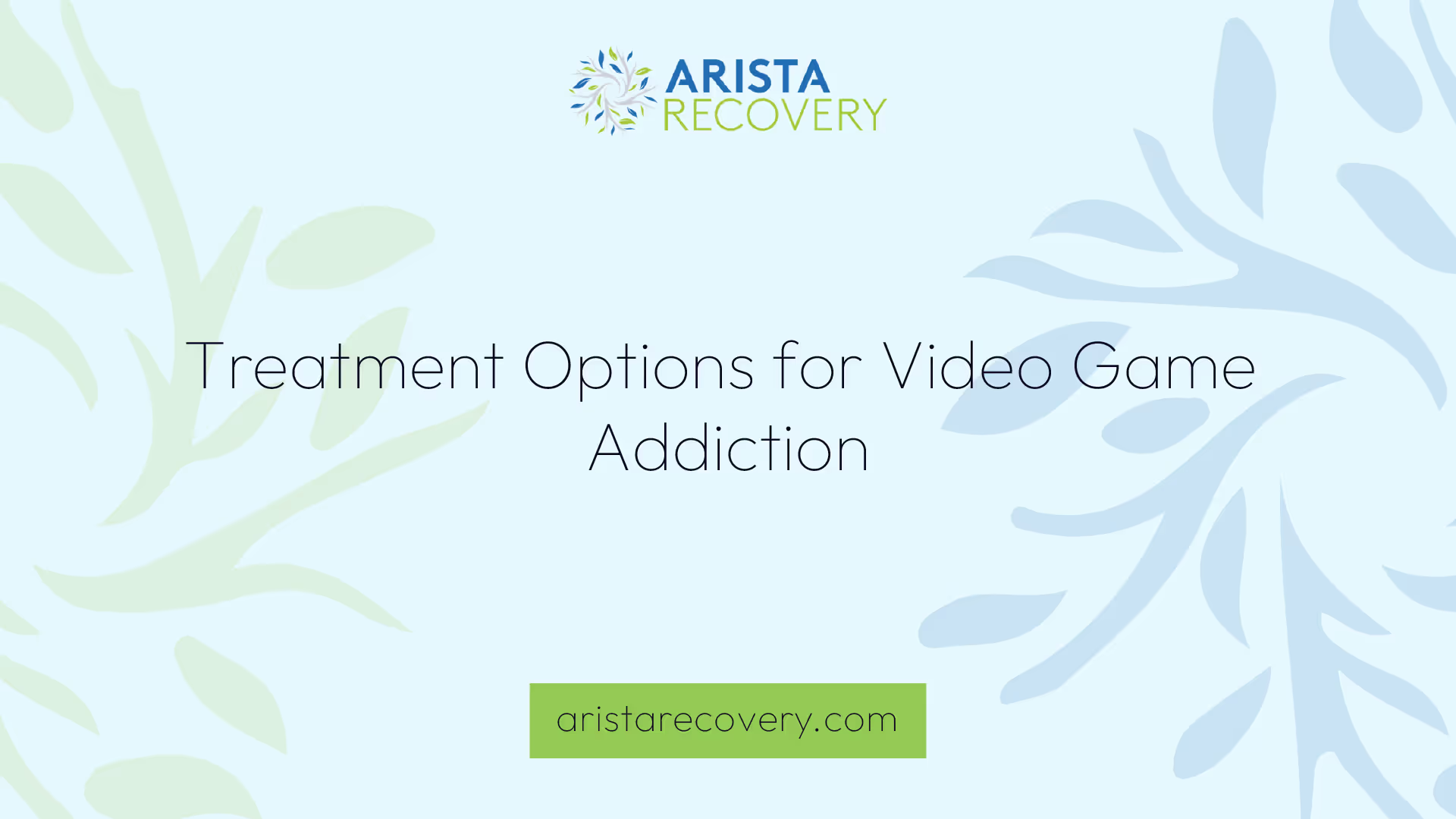How to Stop Video Game Addiction


Identifying Video Game Addiction
Understanding the prevalence and risk factors associated with video game addiction is crucial for how to stop video game addiction. This section provides insights into the scope of the problem and the underlying factors that contribute to it.
Prevalence of Video Game Addiction
Video game addiction, also known as Internet Gaming Disorder (IGD), affects a significant portion of the population. Researchers estimate that between 1.7% and 10% of the U.S. population may be affected by this condition. The wide range is due to varying diagnostic criteria among researchers.
Globally, approximately 1% of the world's population is thought to have a video game addiction, which can negatively impact job performance, friendships, and overall well-being. In the U.S., the American Psychological Association (APA) defines IGD by experiencing at least five of nine criteria over a 12-month period, suggesting that between 0.3% and 1.0% of Americans might have this disorder.
Risk Factors for Video Game Addiction
Several risk factors contribute to the likelihood of developing a video game addiction. Understanding these factors can help in identifying individuals at higher risk and developing strategies for prevention.
- Personality Traits: Low self-esteem, low self-efficacy, attention problems, impulsivity, aggression, anxiety, and depression are strongly associated with problematic gaming [4].
- Gender: Video game addiction is more prevalent in males than females. Studies indicate that boys and men are more likely to meet the criteria for addiction compared to girls and women [5].
- Age: Younger individuals, particularly adolescents and young adults, are more susceptible to developing an unhealthy relationship with video games. Approximately 3-4% of gamers are addicted, with many more experiencing problematic use.
- Mental Health Issues: Individuals with existing mental health conditions, such as anxiety and depression, are at a higher risk for video game addiction. The escapism offered by gaming can be particularly appealing to those struggling with these issues.
Identifying these risk factors and understanding the prevalence of video game addiction is the first step in addressing the issue. For more information on how to stop other types of addiction, such as how to stop caffeine addiction or how to stop social media addiction, visit our related articles.

Understanding Video Game Addiction
Impact on Personal and Professional Life
Video game addiction involves a persistent or recurrent pathological compulsion to engage in gaming despite negative consequences. Individuals suffering from this addiction often experience significant detriments in both personal and professional spheres.
Personal Life
The impact on personal life can be profound. Addicted individuals may neglect basic personal hygiene, experience a lack of sleep, and suffer from poor physical health. Relationships with family and friends may become strained due to the excessive time spent gaming. Moreover, the addiction is often associated with mental health issues such as anxiety, depression, and low self-esteem [7].
Professional Life
In the professional realm, video game addiction can lead to poor job performance and career setbacks. Frequent absenteeism, lack of productivity, and neglect of professional responsibilities are common issues. The same holds true for academic environments, where students may experience declining grades and disengagement from school activities.
Signs and Symptoms
Identifying the signs and symptoms of video game addiction is crucial for early intervention. The following are key indicators that someone may be struggling with this addiction:
For more comprehensive information on addressing various types of addiction, check out our articles on how to stop caffeine addiction, how to stop social media addiction, and how to stop eating addiction.
Understanding these impacts and recognizing the symptoms are essential steps in addressing video game addiction effectively.

Treatment Options for Video Game Addiction
Effective treatment options are available for those struggling with video game addiction. Two prominent methods are Cognitive Behavioral Therapy (CBT) and Motivational Interviewing.
Cognitive Behavioral Therapy (CBT)
Cognitive Behavioral Therapy (CBT) is a widely recognized approach for treating video game addiction. This form of mental health counseling focuses on changing the thoughts and behaviors associated with gaming. According to WebMD, CBT helps individuals identify and replace gaming-related thoughts with healthier alternatives.
CBT aims to address the cognitive patterns that lead to excessive gaming. By recognizing and altering these thought processes, individuals can develop healthier habits and coping mechanisms. The therapy also emphasizes the importance of setting realistic goals and creating actionable plans to reduce gaming time.
For more information on how CBT can help with other addictions, visit our articles on how to stop caffeine addiction and how to stop social media addiction.
Motivational Interviewing
Motivational Interviewing is another effective treatment for video game addiction. This therapeutic approach focuses on enhancing an individual's motivation to change their behavior. According to GoodRx, Motivational Interviewing helps individuals explore their ambivalence towards change and reinforces their commitment to reducing gaming time.
The technique involves a collaborative conversation between the therapist and the individual, aimed at identifying personal goals and values that conflict with excessive gaming. By aligning treatment with the individual's intrinsic motivations, this approach fosters a sense of empowerment and self-efficacy.
For insights into how motivational techniques can assist with other forms of addiction, check out our articles on how to stop sex addiction and how to stop eating addiction.
Both Cognitive Behavioral Therapy and Motivational Interviewing are valuable tools in the fight against video game addiction. By addressing the underlying thoughts and motivations, individuals can regain control over their gaming habits and lead healthier, more balanced lives.
Preventing Video Game Addiction
Preventing video game addiction is essential for maintaining a healthy balance between gaming and other life activities. By implementing strategies such as setting time limits and selecting age-appropriate games, individuals and families can enjoy gaming without falling into addictive patterns.
Setting Time Limits
One effective way to prevent video game addiction is by establishing clear time limits for gaming. Keeping the amount of time spent gaming under control can help maintain a balanced lifestyle. Regularly monitoring gaming time and enforcing breaks can prevent excessive gaming. Here are some guidelines for setting time limits:
- Daily Gaming Time: Limit gaming to a maximum of 1-2 hours per day.
- Break Intervals: Encourage taking a 10-15 minute break every hour.
- Non-Gaming Activities: Promote involvement in physical activities, hobbies, and social interactions.
Age-Appropriate Game Selection
Selecting age-appropriate games is another crucial aspect of preventing video game addiction. Ensuring that children only play games rated for their age can help mitigate potential negative effects [5]. Age-appropriate games are designed to be suitable for the cognitive and emotional development of the player.
Parents can use rating systems such as the Entertainment Software Rating Board (ESRB) to choose suitable games. Additionally, monitoring the content and themes of the games can ensure they align with the child's maturity level.
Implementing these preventative measures can help individuals and families maintain a healthy relationship with video games. For more strategies on preventing various addictions, check out our articles on how to stop caffeine addiction and how to stop social media addiction.
Supporting Individuals with Video Game Addiction
Supporting individuals grappling with video game addiction involves a multi-faceted approach. Two critical components of this support system are joining support groups and implementing effective recovery strategies.
Support Groups
Support groups play a crucial role in helping individuals overcome video game addiction. These groups provide a safe and understanding environment where individuals can share their experiences and strategies for recovery. Some well-known support groups include Gaming Addicts Anonymous, On-Line Gamers Anonymous, and Game Quitters [2].
These groups typically offer both online and in-person meetings, as well as forums where members can discuss their challenges and successes. This communal support can be invaluable in maintaining motivation and gaining practical advice on how to stop video game addiction.
Recovery Strategies
Recovery from video game addiction can be challenging for both the individual and their loved ones. Consistency, love, patience, and self-care are crucial elements in supporting someone with a video game addiction [2]. Here are some effective recovery strategies:
- Setting Clear Boundaries: Establishing and enforcing clear limits on gaming time can help reduce dependency.
- Engaging in Alternative Activities: Encouraging participation in other hobbies and social activities can divert attention away from gaming.
- Professional Counseling: Seeking help from therapists specialized in addiction can provide tailored strategies and emotional support.
- Mindfulness and Relaxation Techniques: Practices such as meditation and yoga can help manage stress and reduce the urge to play video games.
By integrating support groups and personalized recovery strategies, individuals can find a balanced approach to overcoming their addiction. For more insights on managing various types of addictions, check our articles on how to stop caffeine addiction, how to stop social media addiction, and how to stop sex addiction.
Addressing the Challenges of Video Game Addiction
Education on Health Risks
Education plays a key role in addressing the challenges of video game addiction. Understanding the health risks associated with excessive gaming can help individuals make informed decisions about their gaming habits.
Gaming has been linked to various health issues, including sleep deprivation, insomnia, depression, aggression, and anxiety [3]. Vision problems are also common among gamers, with eye strain leading to headaches and poor concentration. In some cases, gaming has even resulted in seizures, prompting warnings on packaging.
To mitigate these risks, it's crucial to educate gamers on the importance of taking care of their physical and mental health. Simple measures like taking breaks, stretching, eating healthy snacks, and following the 20-20-20 rule for eye health can help prevent injuries [3].
Preventative Measures
Preventative measures are essential in curbing video game addiction. By adopting healthy gaming habits and setting boundaries, individuals can enjoy gaming without compromising their well-being.
Setting Time Limits
One effective preventative measure is setting time limits for gaming sessions. Allocating specific times for gaming and ensuring that these sessions do not interfere with daily responsibilities can help maintain a healthy balance. For more strategies, visit our article on how to stop social media addiction.
Age-Appropriate Game Selection
Choosing age-appropriate games is another important step in preventing addiction. Games that are suitable for the player's age group are less likely to contain content that could be harmful or excessively addictive.
Physical Health Practices
Incorporating physical health practices into gaming routines can also be beneficial. Encouraging gamers to take regular breaks, engage in physical activity, and maintain a healthy diet can reduce the risk of physical health issues. For those looking to reduce screen time, exploring how to stop caffeine addiction might be valuable.
Mental Health Awareness
Raising awareness about the mental health impacts of gaming is crucial. Gamers should be educated on the importance of maintaining a healthy emotional state and seeking help if they experience anxiety, depression, or other mental health issues related to gaming.
By implementing these preventative measures and educating individuals on the health risks associated with video game addiction, it is possible to foster healthier gaming habits and reduce the prevalence of addiction. For more insights, explore our articles on how to stop sex addiction and how to stop eating addiction.
References
[1]: https://my.clevelandclinic.org/health/diseases/23124-video-game-addiction
[2]: https://www.goodrx.com/well-being/behavioral-addiction/help-with-video-game-addiction
[3]: https://www.health.harvard.edu/blog/the-health-effects-of-too-much-gaming-2020122221645
[4]: https://www.ncbi.nlm.nih.gov/pmc/articles/PMC6676913/
[5]: https://www.webmd.com/mental-health/addiction/video-game-addiction
[6]: https://www.familyaddictionspecialist.com/blog/video-games-mental-health-and-addiction-the-good-the-bad-and-the-ugly
You’re not alone in this.
When mental health challenges and addiction intersect, it can feel isolating. At Arista, we offer compassionate, evidence-based, and trauma-informed care to help you heal, grow, and move forward.
You’re not alone in this.
When mental health challenges and addiction intersect, it can feel isolating. At Arista, we offer compassionate, evidence-based, and trauma-informed care to help you heal, grow, and move forward.
Support that moves with you.
You’ve taken a brave first step. At Arista Recovery, we’re here to help you continue with best-in-class care designed for long-term healing and support.
.webp)






